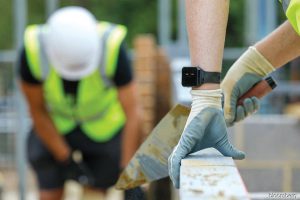Bloomberg
Michael Gove, the UK minister responsible for Boris Johnson’s flagship policy to boost disadvantaged regions, appeared to abandon a key aim of the project: to build 300,000 homes a year.
Speaking to the BBC, Gove said the government will “do everything we can†to increase house building, but added “it’s no kind of success simply to hit target if homes that are being built are shoddy, in the wrong place, don’t have infrastructure required and not contributing to beautiful communities.â€
The comments come after the government faced a backlash from Conservative lawmakers especially in southern England, who fear that over-development will put their jobs at risk in the next general election. Local polls last week showed some traditional Tory districts shedding support for the party.
Under plans announced, the government said it will give local areas more power over what gets built and where, even allowing neighbours and streets to vote on extensions to properties.
The Conservatives are torn between the differing needs of voters in their northern seats, where largely house-building would be welcomed, and the more developed south. Parliamentary statistics show home ownership is one of the strongest contributing factors to whether voters chose the Tories.
UK house prices rose for a 10th straight month in April as shortages of property for sale continued to underpin the market.
The longest run of gains since 2016 left the average value of a home at a record 286,079 pounds ($353,432), mortgage lender Halifax said. Prices rose 1.1% from March, leaving the annual pace of increase at 10.8%.
The figures suggest the housing market is still defying the escalating cost of living crunch, with demand far outstripping supply. However, these headwinds are likely to start cutting through, Halifax said.
“The house price to income ratio is already at its highest ever level, and with interest rates on the rise and inflation further squeezing household budgets, it remains likely that the rate of house price growth will slow by the end of this year,†said Russell Galley, managing director at Halifax.
Northern Ireland overtook the southwest of England as the region with the strongest annual house price inflation, now at 14.9%, the highest since 2007.
“We expect to see single digit rather than double digit annual [price] growth by the end of the year as both stock levels and mortgage rates increase,†he said. “While the cost-of-living squeeze will also intensify, we are not factoring in a recession.â€
 The Gulf Time Newspaper One of the finest business newspapers in the UAE brought to you by our professional writers and editors.
The Gulf Time Newspaper One of the finest business newspapers in the UAE brought to you by our professional writers and editors.
